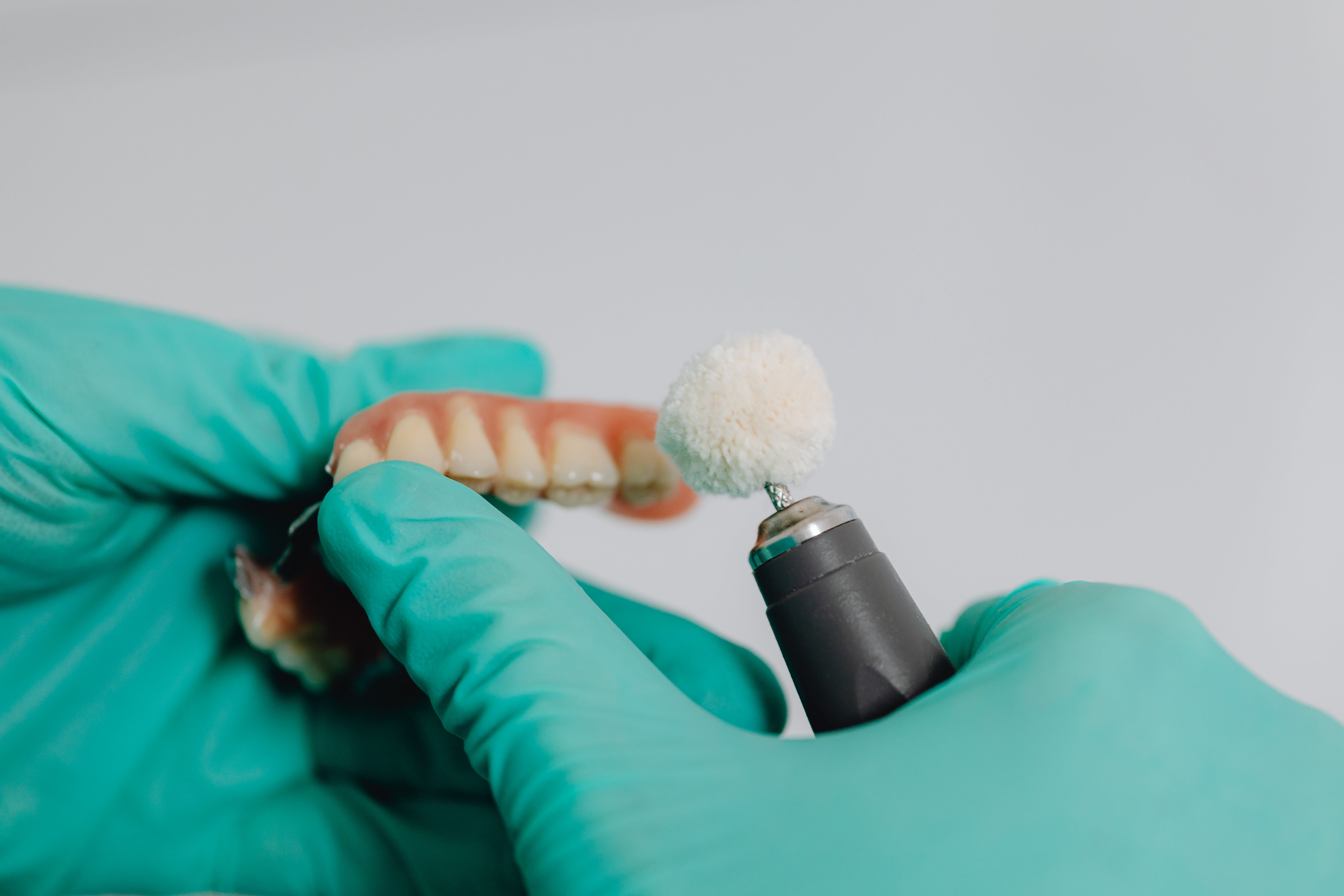If you have missing teeth, you know that it can be embarrassing and uncomfortable. It can even make it difficult to chew. Fortunately, there are ways to fix missing teeth without implants. Here is a guide on how to fix missing teeth without implants.The alternatives to implants for missing teeth are dentures, fixed bridges, and removable partial dentures. Dentures are a removable replacement for missing teeth and may be complete or partial depending on the number of teeth missing. Fixed bridges involve replacing a missing tooth by joining an artificial tooth permanently to adjacent teeth or dental implants. Finally, removable partial dentures fill in the spaces created by missing teeth and are attached to your natural teeth with metal clasps or devices called precision attachments.
Pros of Dental Bridges
Dental bridges are a common and effective solution for replacing missing teeth. They are used to bridge the gap between one or more missing teeth, restoring your ability to chew and speak normally. Bridges are also aesthetically pleasing, as they provide a natural-looking replacement for the missing teeth. Bridges can also help preserve facial structure, preventing the remaining teeth from drifting out of position. In addition, bridges can reduce your risk of developing gum disease and other dental health problems due to the missing teeth.
Cons of Dental Bridges
The biggest disadvantage of dental bridges is that they require alteration of adjacent healthy teeth in order to be installed correctly. This means that healthy areas of your mouth may be affected in order to install the bridge. Additionally, an artificial tooth or pontic must be installed in place of the missing tooth, which can cause discomfort if it does not fit properly. Furthermore, bridges do not last forever and must eventually be replaced or repaired when they become worn or damaged over time. Finally, bridges typically require more maintenance than other forms of tooth replacement such as dental implants, as they cannot be removed for cleaning like dentures can.
What Is a Partial Denture?
A partial denture is a removable dental appliance used to replace one or more missing teeth. It is made up of a metal or acrylic base that fits over the gums, and artificial teeth that are held in place by metal clasps or precision attachments. Partial dentures are an ideal solution for those who have lost some of their natural teeth, but still have some healthy teeth remaining.
How Does It Work?
Partial dentures work by filling in the gaps left behind by missing teeth and restoring the natural balance in the mouth. The artificial teeth are designed to match the size and shape of the patient’s existing teeth for a comfortable fit and an attractive appearance. The metal clasps or precision attachments hold the partial denture firmly in place while chewing and speaking, ensuring that it does not move around or cause discomfort. In addition, partial dentures can help maintain facial structure, prevent remaining teeth from shifting out of place, and improve chewing efficiency.
Full Dentures Without Implants
Full dentures are a type of removable dental prosthesis that are designed to replace all of the teeth in a single arch, either the upper or lower jaw. Traditional full dentures rely on suction and the natural contours of the mouth to stay in place. They can be a great solution for people who have lost all of their teeth due to decay, periodontal disease, or injury. It is possible to get full dentures without implants, however it is important to understand that without implants, these dentures may not fit as securely as those with implants.
Implant-supported dentures provide more stability than traditional dentures because they are anchored directly into the jawbone and gum tissue with small metal posts. This helps create a secure fit and minimizes slippage or clicking sounds when speaking or eating.
Without implants, full dentures will need to be held in place with special adhesives or dental bonding material. These materials help keep your denture from moving around when you talk or eat and can provide additional support for those without implants. Additionally, many people opt for custom-made full dentures that use impressions of your mouth to create a more secure fit than stock models.
If you are considering dental prostheses such as full denture without implants, it’s important to speak with an experienced dentist who can assess your specific needs and recommend the best treatment option for you. Your dentist may recommend regular follow-up appointments even after your prosthesis has been fitted to ensure its fit remains comfortable and secure over time.
What Are the Benefits of Resin-Bonded Bridges?
Resin-bonded bridges, also known as Maryland bridges, offer a number of advantages for those looking to replace missing teeth. This type of bridge is made up of a false tooth and two metal bands that are bonded to the adjacent teeth. The resin-bonded bridge offers several benefits, including:
- Cost: Resin-bonded bridges are typically less expensive than other types of bridges.
- Durability: Resin-bonded bridges can last up to 15 years with proper care and maintenance.
- Comfort: Because the resin bonds directly to the adjacent teeth, there is no need for extra support from crowns or other dental work. This makes it more comfortable than other types of bridges.
- Appearance: The resin material used in this type of bridge blends in with surrounding teeth, making it nearly indistinguishable from your natural teeth.
- Versatility: Resin-bonded bridges can be used for front teeth as well as back teeth, making them an ideal choice for people with missing or damaged teeth in any part of their mouth.
Overall, resin-bonded bridges offer an effective and affordable solution for replacing missing or damaged teeth. With proper care and maintenance, they can provide many years of reliable service.

Caring for Dentures without Implants
Caring for dentures without implants can require some extra effort, but with the right maintenance and care, your dentures can last a lifetime. The key to keeping your dentures clean is to practice good oral hygiene habits and regular visits to your dentist for check-ups. Here are some tips for caring for your dentures without implants:
Brushing and Cleaning
It is important to brush your dentures twice a day – just like you would brush your natural teeth. Use a soft toothbrush or a special denture brush designed specifically for cleaning dentures. Avoid using regular toothpaste, as it can be too abrasive and damage the surface of the denture. Instead, use a mild soap or detergent that is designed for cleaning dentures. Use lukewarm water when cleaning your denture to avoid damaging the material.
Soaking
When you are not wearing your denture, it is important to keep them moist so that they do not dry out or become brittle. Soak them overnight in warm water or a special soaking solution recommended by your dentist. Do not use hot water as this can cause the material to warp and distort.
Avoiding Damage
It is important to handle your dentures with care as they are delicate and can be easily damaged if dropped or mishandled. Make sure you keep them in a safe place when they are not being worn, such as in a protective container filled with water so that they do not dry out. Avoid using harsh chemicals when cleaning them as this could damage the surface of the denture material.
Regular Visits
Finally, remember that regular visits to your dentist are essential in order to keep your dentures in good condition and make sure they fit properly as your mouth changes over time. Your dentist will be able check for any signs of wear and tear on the material of the denture and make any necessary adjustments if needed.
What Is a Flipper Teeth Replacement?
A flipper teeth replacement is a removable prosthetic device used to replace missing teeth. It is made from acrylic and can be custom-made to fit the patient’s mouth. The flipper teeth replacement provides a natural-looking smile without the need for invasive dental procedures. It is typically used as a temporary solution until more permanent treatments, such as bridges or implants, can be done. The flipper teeth replacement can also be used to improve the appearance of existing teeth by covering up discolored, crooked, or misaligned teeth.
Should I Get One?
If you are missing one or more teeth, then a flipper teeth replacement may be an appropriate solution for you. Many people find that it offers them improved self-confidence and allows them to feel comfortable speaking and eating in public. It is also an affordable option compared to other treatments such as implants or bridges. However, it is important to discuss all of your options with your dentist before making a decision on what type of treatment is best for you.
Replacing Missing Teeth Without Surgery
Replacing missing teeth without surgery is possible through the use of dental implants, bridges, and dentures. Dental implants are small titanium posts that are surgically inserted into the jawbone to replace missing teeth. They provide a stable and secure foundation for artificial teeth, such as crowns and bridges. Bridges are false teeth that are held in place by two crowns on adjacent teeth. Dentures are removable artificial teeth that fit over the gums. All of these methods can be used to replace missing teeth without surgery, though they may require some minor adjustments or repairs over time. For those who want a more permanent solution, dental implants may be the best option. Implants provide a natural-looking replacement for missing teeth and can last for many years with proper care.
It is important to note that none of these methods will restore the full function of a natural tooth. However, they can help improve the appearance of your smile and make it easier to eat and speak normally. In addition, these treatments can help prevent further damage to other teeth by providing support to adjacent teeth or reducing stress on existing dental work. If you have lost one or more teeth, it is important to speak with your dentist about your options for replacing them without surgery so you can choose the best option for your needs.

Conclusion
In conclusion, there are several ways to fix a missing tooth without implants. Options such as dentures, dental bridges, and partial dentures are all viable solutions to replace a missing tooth. The method chosen should be based on the patient’s overall health, budget, and preferences. It is important to consult with a qualified dental professional who can provide input and guidance on the best solution for each individual case.
Overall, the goal of fixing a missing tooth is to restore the patient’s ability to eat properly and improve their smile. With the right combination of restorative procedures, patients can enjoy restored dental function and improved aesthetics without implants.
